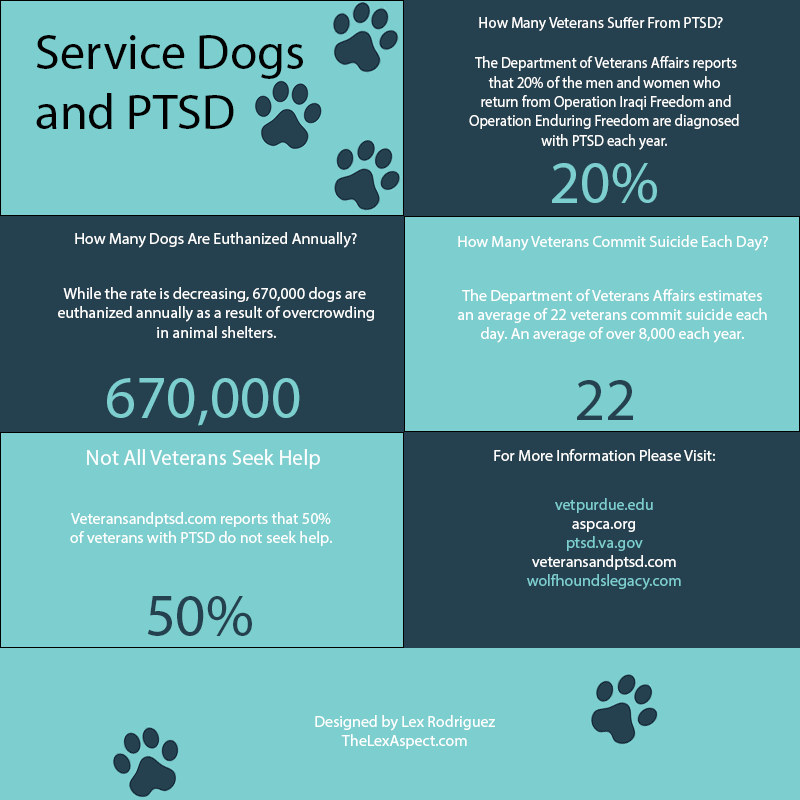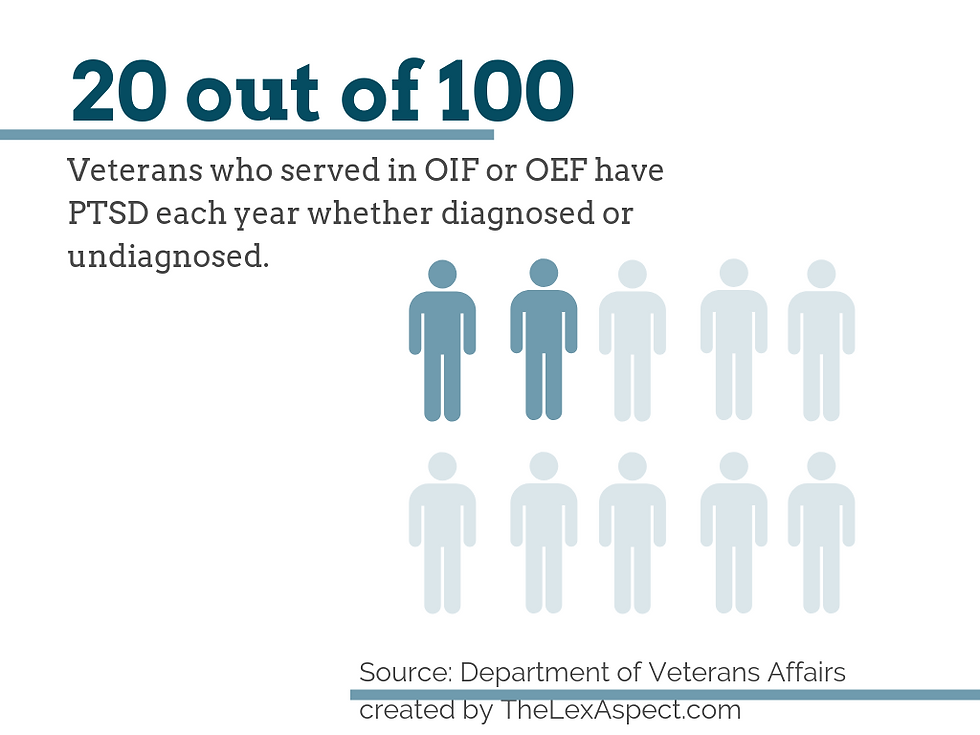Service Dogs Help Veterans Overcome PTSD
- Lex

- Feb 3, 2019
- 2 min read
Updated: Feb 10, 2019
Cape Coral, FL, January 2019 – Many animal shelters across the United States become overcrowded after the holidays as gifted pets are returned or abandoned. A local veteran non-profit organization called Wolfhounds Legacy rescues as many of these dogs as they can to turn them into service dogs for veterans with post-traumatic stress disorder (PTSD). Faye Keller, the founder of Wolfhounds Legacy, said saving the dogs and training them for veterans is their way of giving back.
“Our veterans go through so much for us,” said Keller. “I can only repay them by giving them a trained dog that will go on to challenge them and get them back up and make them whole again.”
The ASPCA reports that 670,000 dogs are euthanized as part of the overcrowding each year.

“We know we can’t save all of these dogs, but we want to make an impact and give these dogs purpose,” said Keller. “Just like we want our veterans to find purpose.”
Brent Young is a veteran who received a service dog hoping that it could help him cope with his PTSD. Shortly after meeting his soon-to-be service dog the treatment was underway.
“I wasn’t in a good place before I reached out,” said Young. “I struggled with public settings and I rarely left my home. My health was at serious risk.”
Young served in the Air Force as a sniper in Security Forces. He said coming home from his deployment brought him frustrations that he had to learn to live with, but he wasn’t on his own once he received his service dog, Cairo.
“Mental health is something we don’t necessarily think about until it gets overwhelming,” Young said. “Cairo has taken a role in my life that I can honestly say saved me.”
Purdue University College of Veterinary Medicine conducted a study connecting service dogs and military members who are diagnosed with PTSD. The study was conducted with 141 post-9/11 military members and veterans. Of these participants, 66 were measured on self care alone while 75 participants had trained service dogs. The study concluded that those with service dogs showed decrease in lower PTSD symptoms, reduced depression, and increased social participation.
Nevena Rosic, the Director of Training Relations at Wolfhounds Legacy, said training service dogs helps veterans relearn how to function in a “regular” world.
“[Veterans] come in unsure if they can even do the program,” Rosic said. “They worry about being able to control and train the dogs and they are unsure about the people around them. Little by little over the months of training they regain their life back.”
Rosic stated many veterans often are on high alert due to their anxiety related to PTSD. She further stated by the end of the training their service dogs are able to detect their discomfort and make their veterans feel whole again.
“We see it with many of our veterans,” Keller said. “They come to our program broken and 9 months later they are a new person that achieved certification with their service dog that they both earned together. That is the moment we do this for.”
Wolfhounds Legacy is open to honorably discharged veterans and first responders diagnosed with PTSD. They are actively accepting volunteers and foster homes. More information can be found at wolfhoundslegacy.com.








Comments